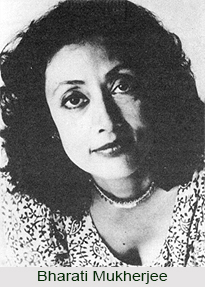 Bharati Mukherjee, an Indian writer , successful in highlighting the cultural clashes and other social and political dilemmas in North America. She is an Indian-born American writer and professor in the department of English at the University of California, Berkeley. She received National Book Critics Circle Award (The Middleman and Other Stories) in the year 1988.
Bharati Mukherjee, an Indian writer , successful in highlighting the cultural clashes and other social and political dilemmas in North America. She is an Indian-born American writer and professor in the department of English at the University of California, Berkeley. She received National Book Critics Circle Award (The Middleman and Other Stories) in the year 1988.
Early Life of Bharati Mukherjee
Bharati Mukherjee was born on 27th July, 1940 in Kolkata, West Bengal. She came off a wealthy family. Her parents were Sudhir Lal and Bina Mukherjee. After independence she moved with her parents. She returned to Kolkata in early part of 1950 and got admitted in the Loreto School, Kolkata. Since her childhood she wanted to become a writer and had written many short stories. She graduated from Calcutta University In 1959 and received her M.A. from the University of Baroda in 1961.Then she went to United States and got M.F.A. degree from the Iowa University in 1963.She was given scholarship by this university. She did her Ph.D in comparative literature from the same University in 1969.
Career of Bharati Mukherjee
In her early career Bharati Mukherjee taught at many colleges in US like- McGill University, Skidmore College, Queens College, and City University of New York. Now she is the professor in the department of English at the University of California, Berkeley.
Works of Bharati Mukherjee
Bharati Mukherjee began writing books along with her husband ,writer Clark Blaise, whom she married in 1963.They together produced two books, Days and Nights in Calcutta in 1977 and The Sorrow and the Terror: The Haunting Legacy of the Air India Tragedy in 1987 Her first book, The Tiger`s Daughter, was published in 1972. The story of this book is about an Indian woman who comes back to India after many years from West and looks at her own country through changed eyes.
Short Stories of Bharati Mukherjee
In her anthology of short story, Darkness, published in 1985, Bharati Mukherjee explored Canadian prejudice against South Asians. In 1989 her popular novel Jasmine was published.It is about an illegal immigrant to the United States. Her recent major works are The Holder of the World in 1993, Leave It to Me in 1997 and Desirable Daughters in 2002.
Award received by Bharati Mukherjee
In 1988 she got National Book Critics Circle Award for her famous fiction The Middleman and Other Stories. Earlier she received the National Magazine Award in 1981 for her essay "An Invisible woman." before that she won the first prize from the Periodical Distribution Association for her story, "Isolated Incidents."
Other Works of Bharati Mukherjee
Bharati Mukherjee is a member of the American Academy of Arts and Sciences.
Books by Bharati Mukherjee
| The Tiger`s Daughter (1971) |
| Wife (1975) |
| Jasmine (1989) |
| The Holder of the World (1993) |
| Leave It to Me (1997) |
| Desirable Daughters (2002) |
| The Tree Bride (2004) |
| Miss New India (2011) |
| Darkness (1985) |
| The Middleman and Other Stories (1988) |
| A Father |
| The Management of Grief |
| Days and Nights in Calcutta (1977, with Clark Blaise) |
| The Sorrow and the Terror: The Haunting Legacy of the Air India Tragedy (1987, with Clark Blaise) |
| Political Culture and Leadership in India (1991) |
| Regionalism in Indian Perspective (1992) |













